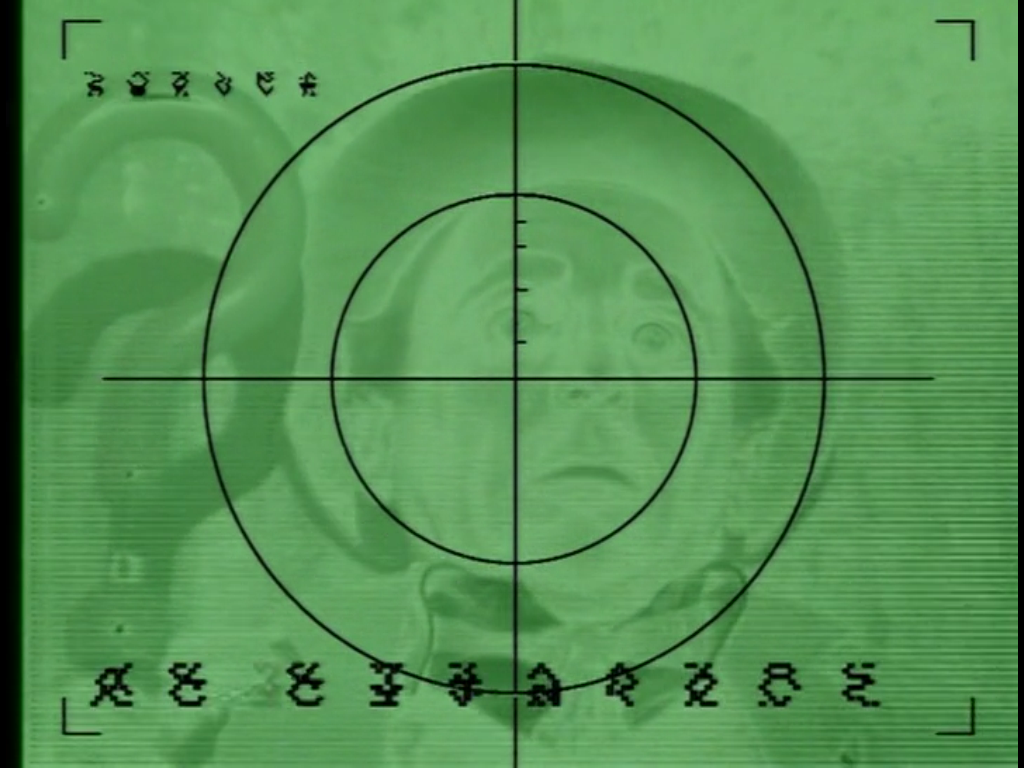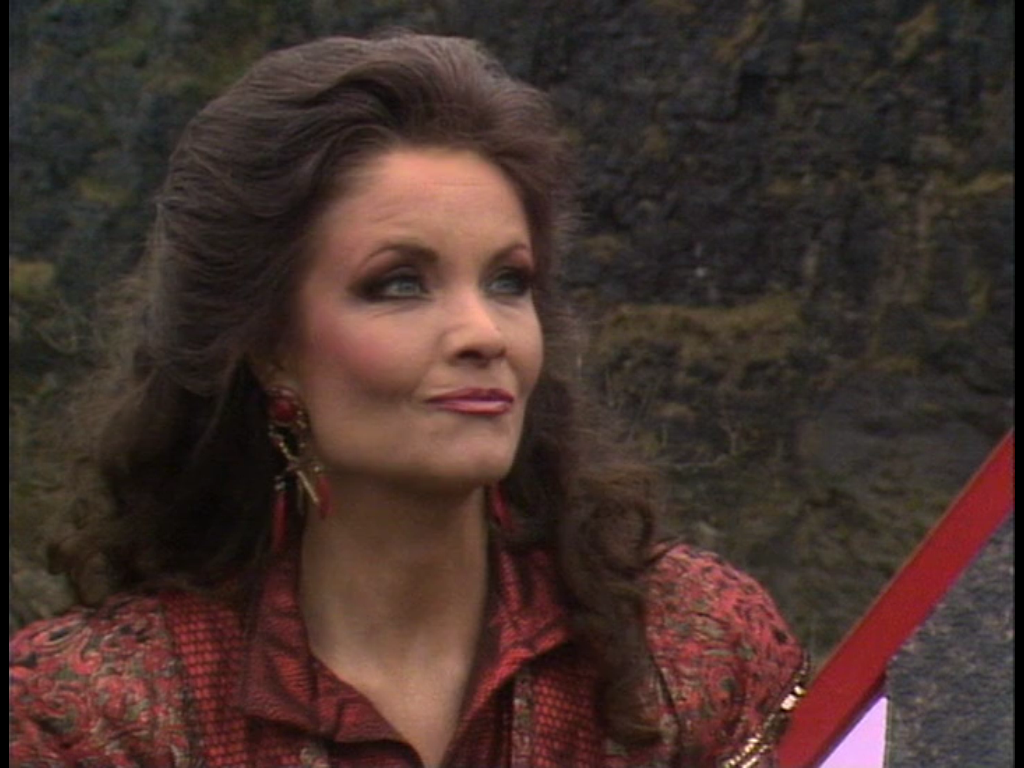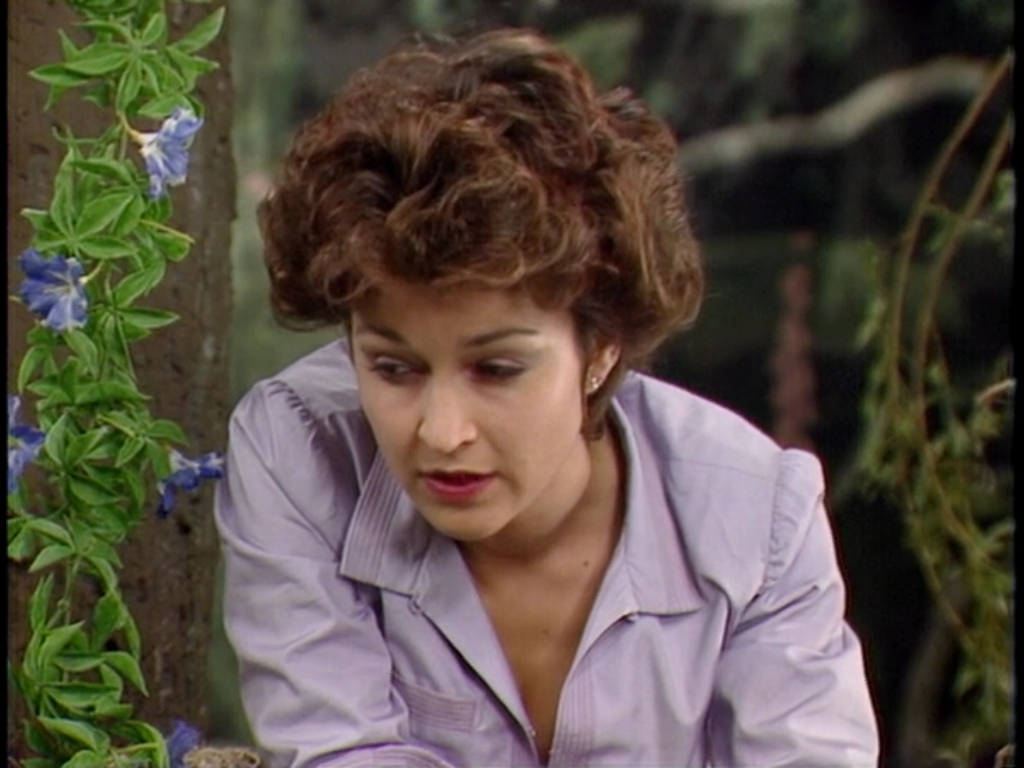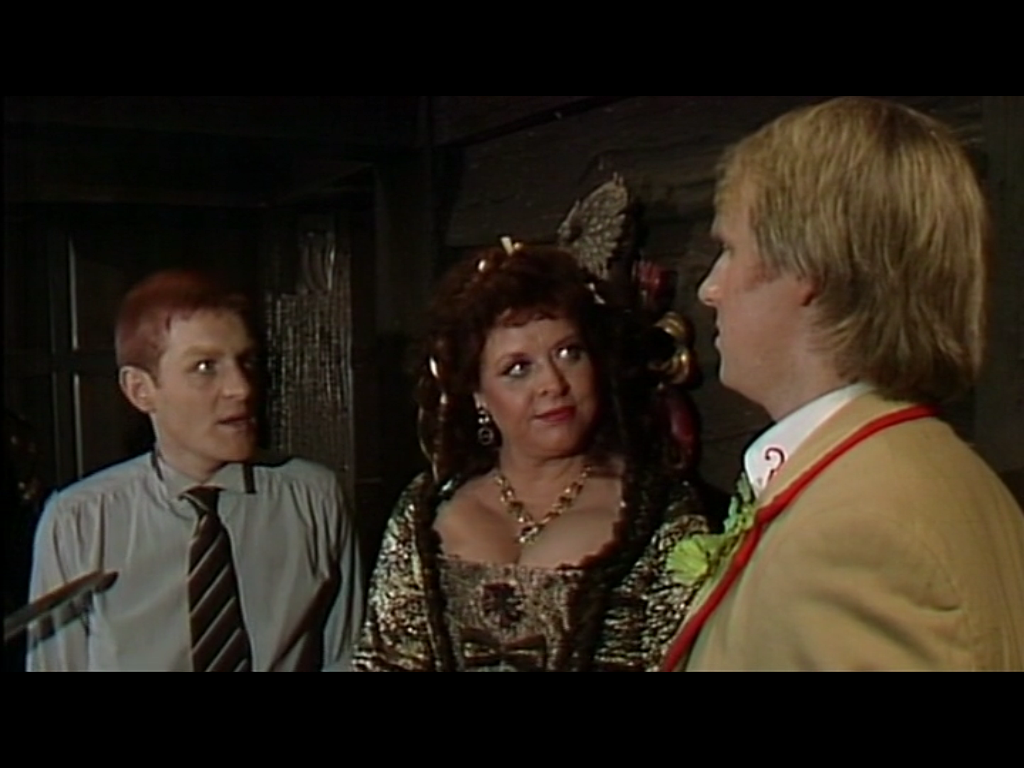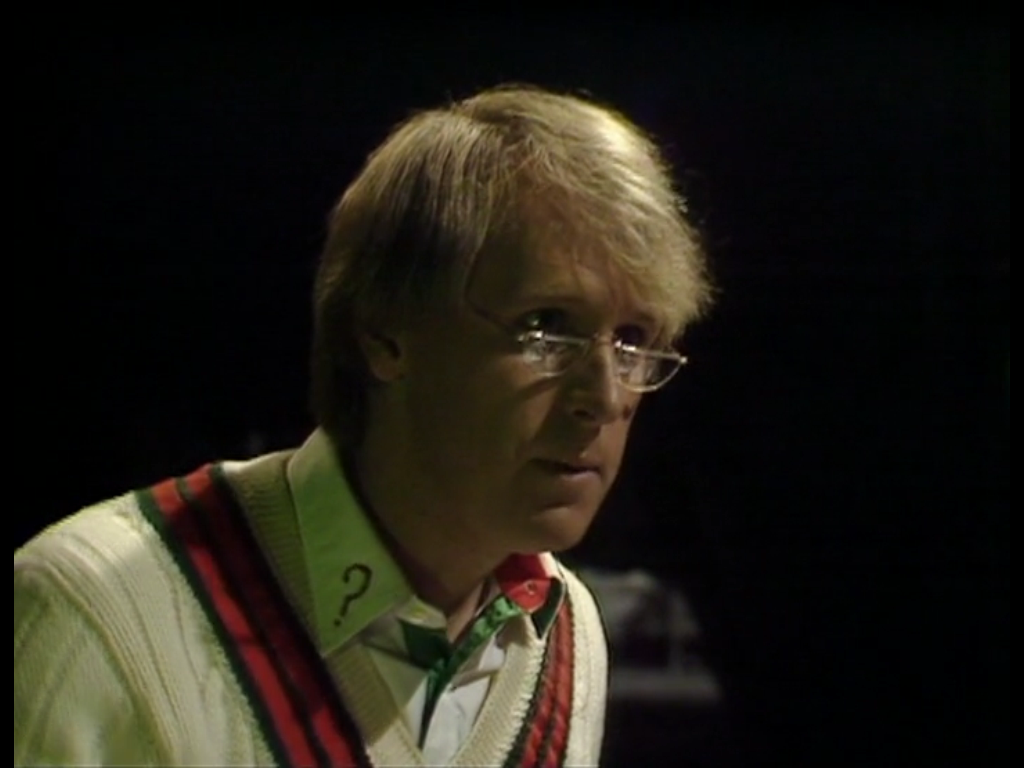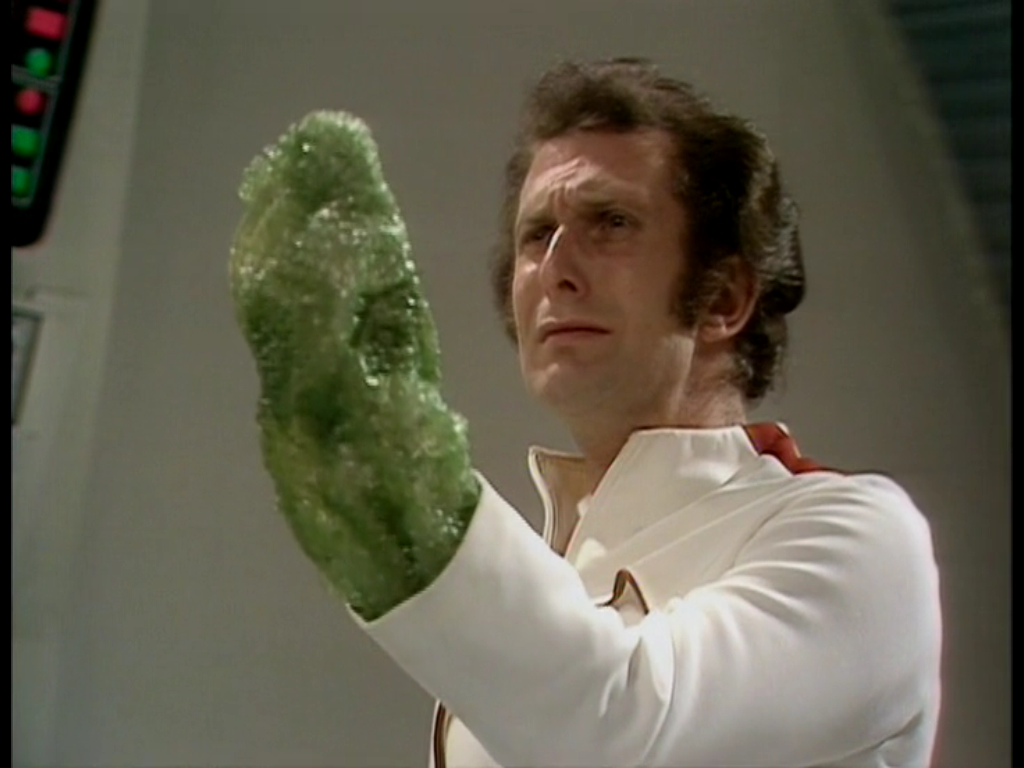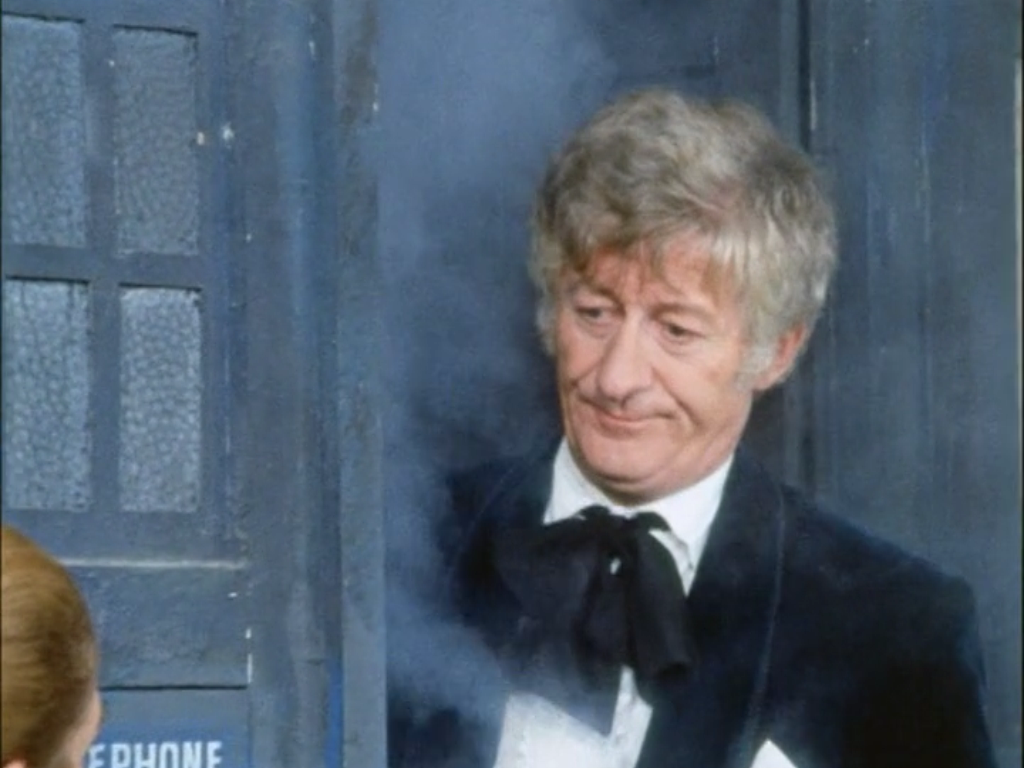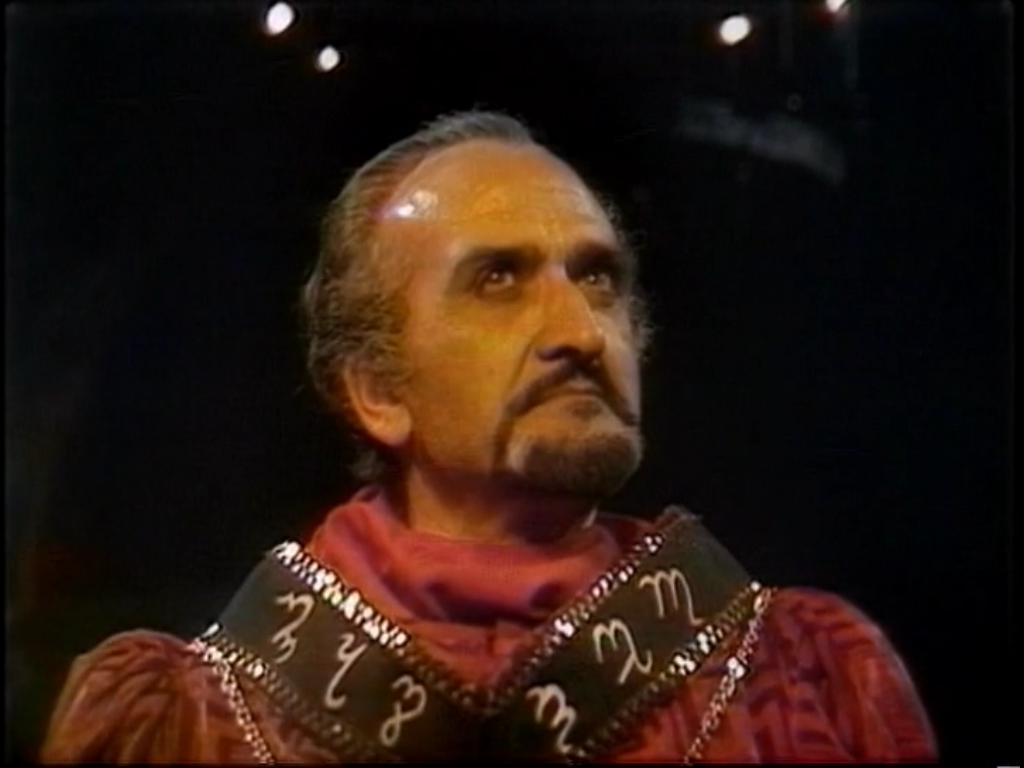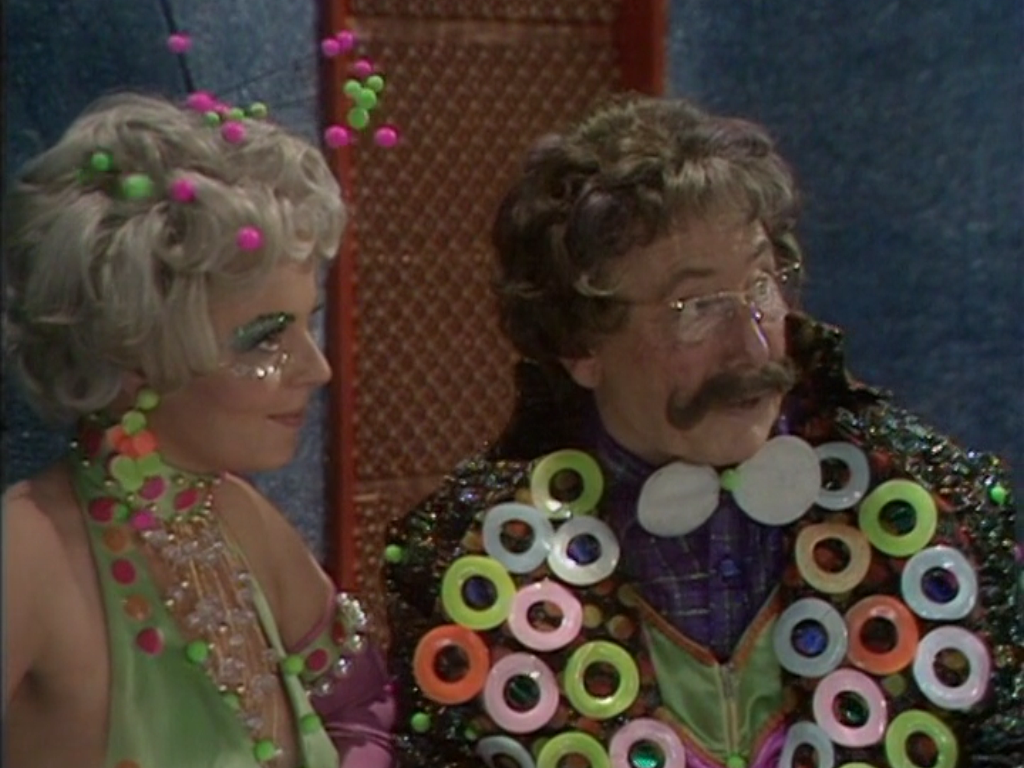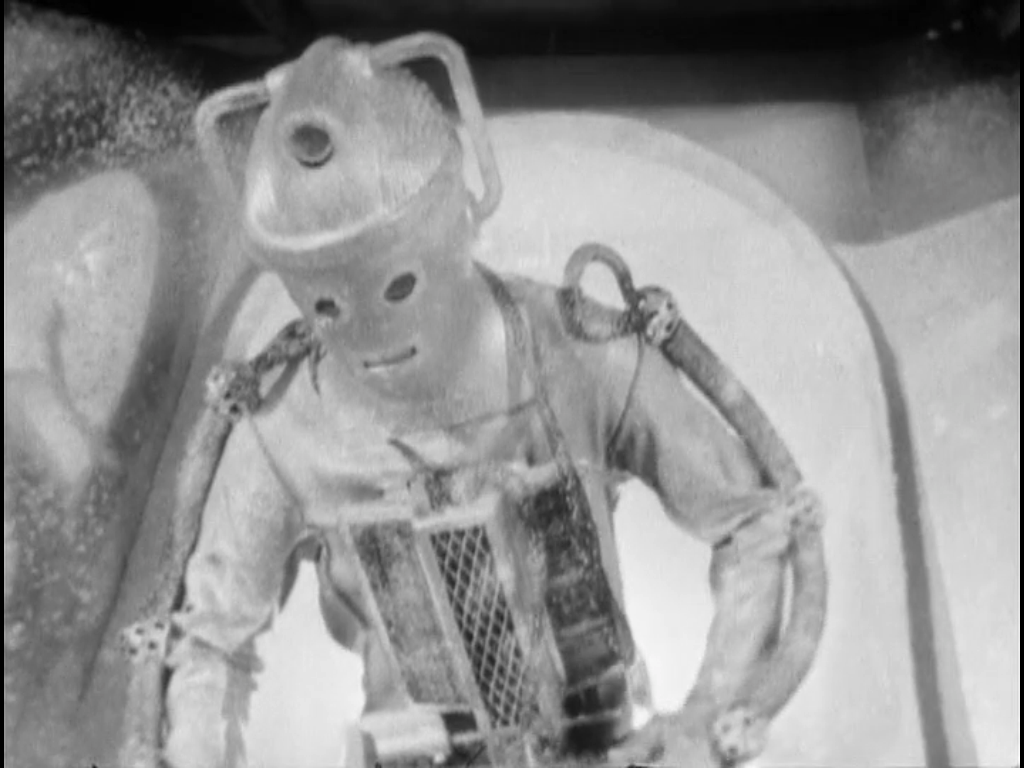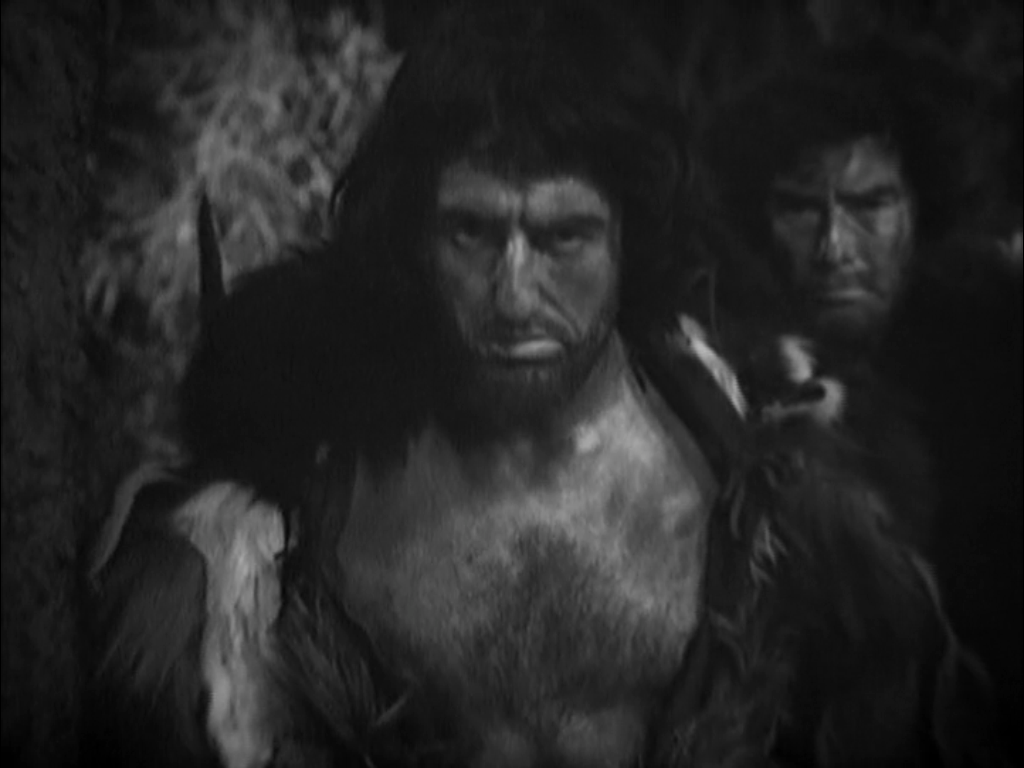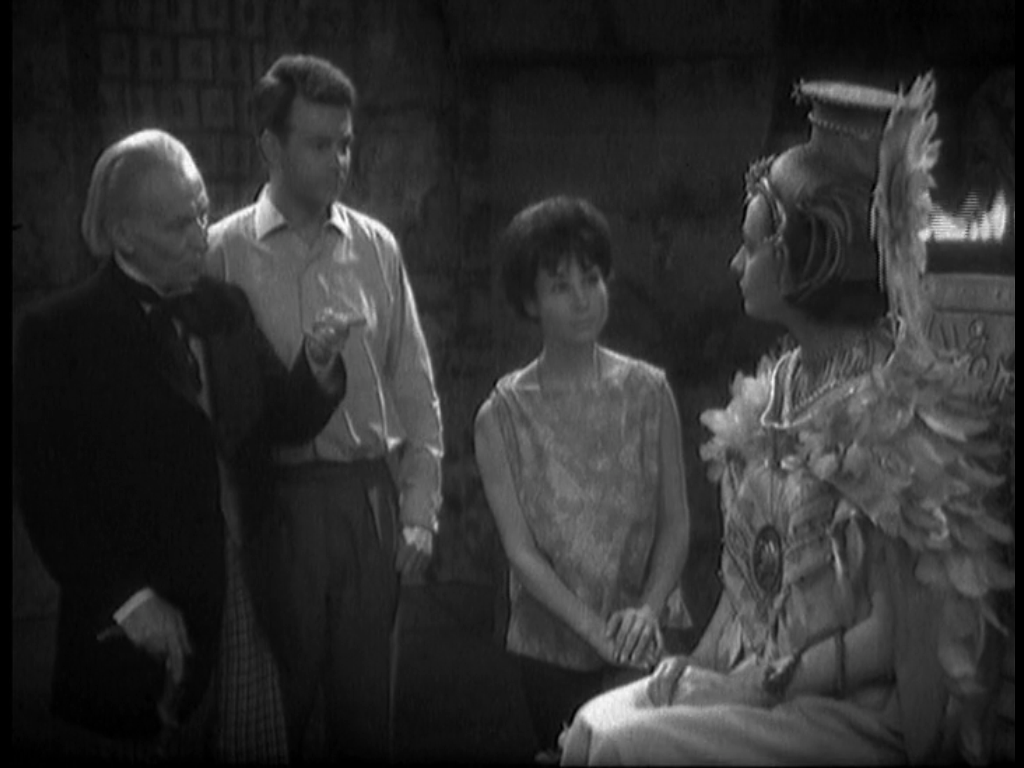After Peter Davison left, a relatively unknown actor by the name of Colin Baker was cast in the lead role of Doctor Who. He’d actually appeared in the show itself once before (as a Time Lord guard named Maxil in “Arc of Infinity”), but it was safe to say he wasn’t a household name. Producer John Nathan-Turner and script editor Eric Saward decided that they needed a contrast between the mild-mannered 5th Doctor played by Davison, and so the new 6th Doctor was almost a polar opposite. Loud, brash, arrogant, and at times verbally abusive to his relatively new companion Peri.
It was, to put it mildly, an unmitigated disaster.
Baker appeared in the final story of Season 21 (Davison’s contract actually expired one story short of completing that run of stories) in a story titled “The Twin Dilemma” (more on that below), which like the series up until that point consisted of 25-minute episodes. However, there had been one story earlier in the year where due to scheduling against the Winter Olympics, a 4-part story had been edited into a 2-part story where each episode was 45 minutes long. That was the format that Season 22 took; this fact will become important later. Baker and actress Nicola Bryant appeared in all of Season 22… and then Doctor Who was cancelled.
After a great deal of outcry, the show was un-cancelled, but it was clear that everyone involved with Doctor Who was on rocky ground. Nathan-Turner and Saward were given a Season 23 order, but it was greatly reduced; instead of 13 45-minute episodes, they were given 14 25-minute episodes. That season was one massive story titled “The Trial of a Time Lord” (although it’s often broken up into four sub-stories), and after it aired, Baker was soon fired from Doctor Who. While he was eventually offered the chance to come back to film one final story to write the 6th Doctor out of the series, he declined the offer. And so, after coming on board in an extremely rocky time period, his departure was almost like slipping out the back door when no one was looking. It was an ignoble end to an actor’s time on the show that’s still controversial to this day. The three stories I selected from his extremely limited run, in many ways, typify some of the problems with that brief era.
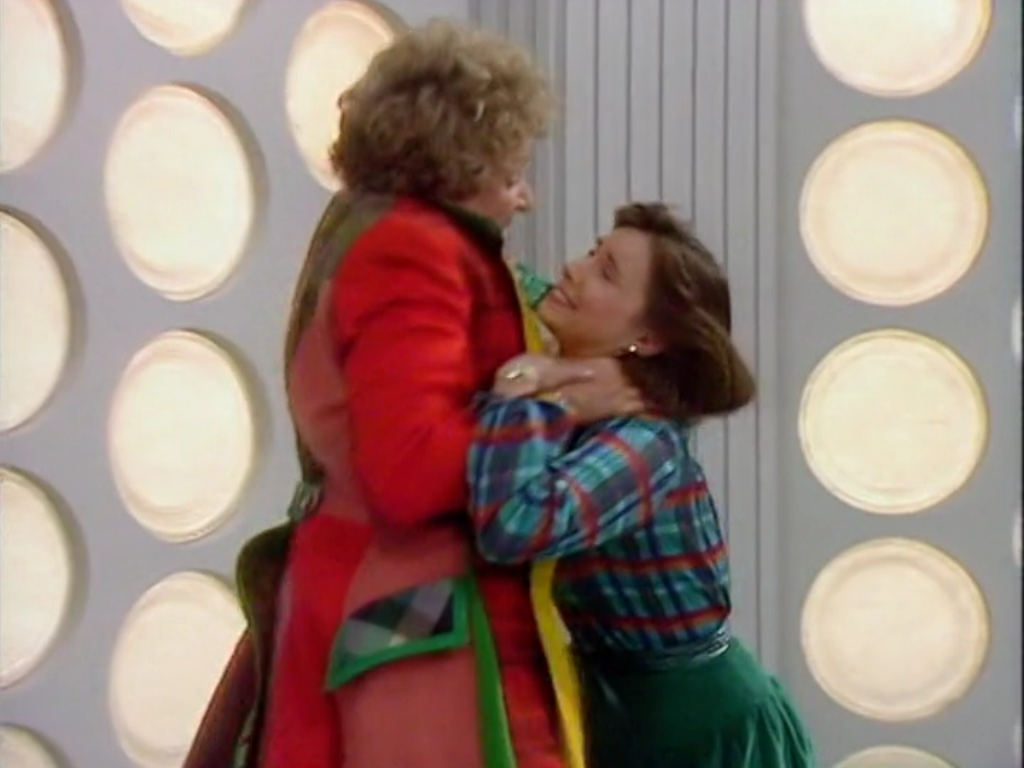
#137: The Twin Dilemma
As mentioned up above, “The Twin Dilemma” closed out Season 21, which meant that viewers got a full story of Colin Baker as the Doctor before the show closed up shop until the next year. Stacking the deck against Baker, that glimpse was nothing short of crap. “The Twin Dilemma” has a lot of problems, to put it mildly. The story doesn’t really make sense, written by a newcomer to the show (Anthony Steven) who clearly had no idea of any of the series’ basic concepts. Everything involving time travel defies logic (and there’s a lot of it), to say nothing of how Doctor Who treated it in every other story but this one. The titular twins’ abilities with math are never really explained (one can only guess that Steven was given the linked stories “Logopolis” and “Castrovalva” as a primer and he thought that anyone good at math could somehow warp the laws of physics by writing down equations), and the lisping actors who play them are shockingly bad actors to boot. Dialogue disasters like, “Listen… the sound of giant slugs!” run rampant. Characters adopt fake names and identities for no reason whatsoever. But all of that could probably be ignored if the new Doctor was good.
He wasn’t. “The Twin Dilemma” is probably most notable for a scene early on where the Doctor, still reeling from his regeneration, suddenly goes insane at which point he stalks and strangles his companion Peri. It’s a jaw-dropping moment, one that’s clearly meant to shock. What script editor Saward didn’t seem to understand is that more importantly, it was a huge turn-off. And for the rest of the story, the new Doctor is an awful arrogant ass. He’s downright cruel to Peri, along with everyone else around him. The earliest Hartnell stories don’t have him as much of a hero (that doesn’t change until the fourth story), but that Doctor is positively cuddly compared to the one presented in “The Twin Dilemma.” The story concludes with the Doctor snapping, “I am the Doctor, whether you like it or not!” at Peri. Considering she’d joined just two stories earlier, there really should have been one extra line where her response is, “Great, now take me home, because I’m out of here.” This story is appalling in every way. I hadn’t seen it since it first aired in the Washington DC area in the mid-80s and it was somehow even worse than I remembered. Avoid, avoid, avoid.
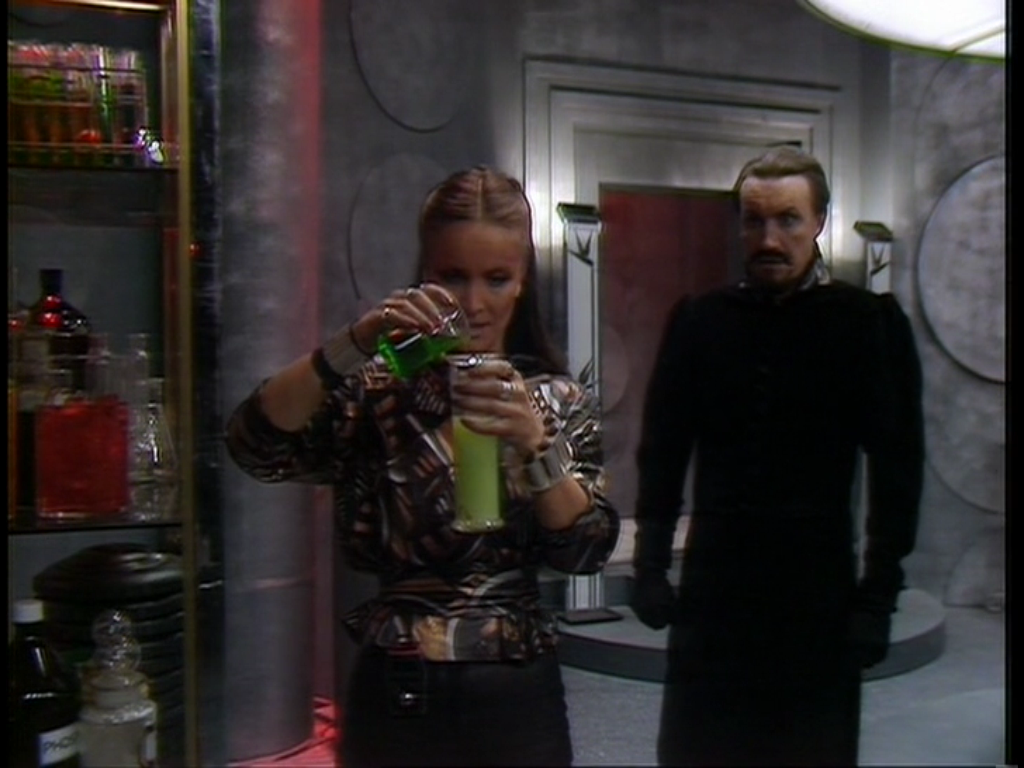
#140: The Mark of the Rani
A funny little story for you; when I first saw “The Mark of the Rani” ages ago, I missed the first 15 minutes or so. Seeing that section now for the first time, it struck me that I didn’t miss a single thing. Most of the Season 22 stories suffered from a bad pacing decision from script editor Saward. Even though episode 1 of the stories was now twice as long as before, he decided that the Doctor shouldn’t encounter the main action until near the end of that episode. It’s at its worse in a story called “Revelation of the Daleks” where the Doctor and Peri literally wander in the wilderness for 45 minutes, completely divorced from the rest of the story. “The Mark of the Rani” is actually one of the better stories this season in terms of when the Doctor and Peri get things moving, but even then it’s a little surprising how unessential that first chunk of time is.
The story itself was one that wasn’t as good as I remembered. Writers Pip and Jane Baker introduce the Rani in this story, a female Time Lord scientist who was supposed to be a cold, calculating, ruthless foe for the Doctor. Unfortunately, “The Mark of the Rani” also brings back the Master, and that’s where “The Mark of the Rani” completely derails. The Master continually gets one over the Rani, stealing her tools and foiling her plans. The end result is a story introducing a character that’s forever made to look incompetent. Not the brightest of ideas. It’s a little frustrating because the idea of the Rani is great, but the execution is lousy.
On the bright side, the Doctor is only a dick to Peri about half of the time (instead of all of the time), the scene of Peri chasing the Doctor’s runaway cart is unintentionally hysterically funny, and one extra’s pants are so tight you can clearly make out the shape of his genitals. “The Mark of the Rani” could have been so good, but instead it’s just limp. The memory cheated here, too, it seems. Perhaps it just felt better when comparing it to other stories in the season like “Attack of the Cybermen” and “Timelash” (the latter of which is one of the five worst stories in the series’ history; there’s a reason why so many people hate the Colin Baker era). Ah well.
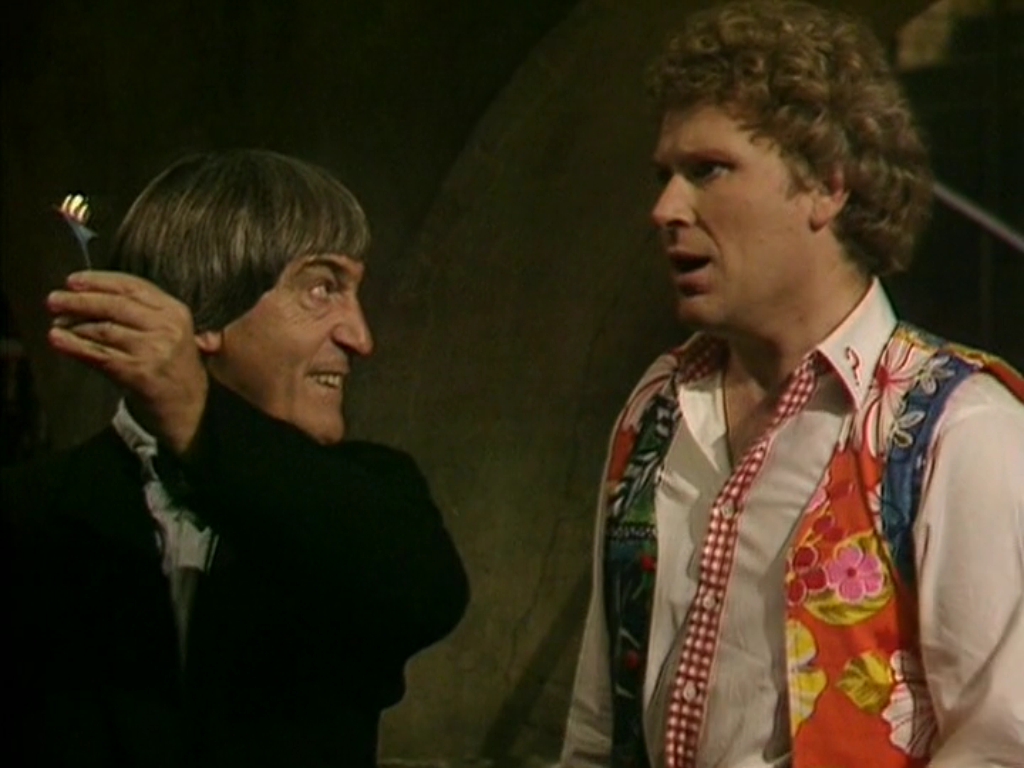
#141: The Two Doctors
Not including script editor Saward’s own contributions, the only returning writer from the show’s past for Season 22 was Robert Holmes, who wrote “The Two Doctors.” Bringing back Patrick Troughton and Frazer Hines as the 2nd Doctor and Jamie, “The Two Doctors” is probably the best story of the season. And it’s just all right.
There are things that Holmes gets better than anyone else, here. By having another Doctor and companion to play with, we get the 2nd Doctor and Jamie immediately in the mix of things, which is a nice change. (Of course, once they’re captured, the 6th Doctor and Peri then take forever to catch up; the 6th Doctor doesn’t actually encounter the main villains until 20 minutes from the end of this 3-part story.) The Doctor’s jerk-factor is lowered to him being rude and nasty only on a handful of occasions, a pleasant change. And while the story isn’t great, there are some nice twists and turns, even if the location work in Seville feels utterly tacked on.
But still, when the dust settles, “The Two Doctors” underuses the admittedly-older Troughton (who wasn’t up to the rigors of a massive role), it still stalls far too much, and the less said about the alien Androgum appearances the better. And in a season peppered with increasing violence, the Doctor’s one-liners about the death of a villain feel out of place in a story that hasn’t otherwise reveled in the carnage that ones like “Vengeance on Varos” or “Revelation of the Daleks” will. It’s pleasant enough, though, and Holmes clearly tries to actually give all the characters something to do. It’s got its faults, but it also has Blake’s 7 villain Jacqueline Pearce as a wonderfully nasty foe (in many ways, she’s what the Rani should have been), and perhaps one of the gayest men ever in the form of failed thespian Oscar (who seems far more interested in catching moths than in hottie Anita who all but throws herself at him and is completely ignored). It’s not perfect, but once it finally gets going, “The Two Doctors” still makes me smile.
Sorry this is a little later than normal, but I actually didn’t finish watching June’s stories until… July 2nd. (June 32nd?) I blame the first story of the three for sapping my will to watch more. That and being really, really busy at work. Fortunately with August only having one story to watch starring the 8th Doctor, I already had tentative plans that allowed for some slippage to occur, so we’ll be back on track (sort of) shortly. You’ll see.
Next up is Sylvester McCoy, who appeared in the show’s final three seasons before getting cancelled for real in 1989. But of course, that’s not the end of the story at all…
